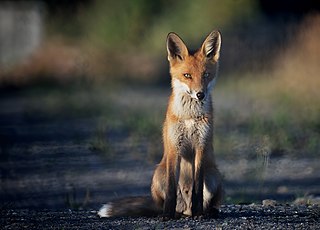Douglas, occasionally spelt Douglass, is a Scottish surname. It is thought to derive from the Scottish Gaelic dubh glas, meaning "black stream". There are numerous places in Scotland from which the surname is derived. The surname has developed into the given name Douglas. Douglas is a habitational name, which could be derived from any of the many places so-named. While there are numerous places with this name in Scotland, it is thought, in most cases, to refer to Douglas, South Lanarkshire, the location of Douglas Castle, the chief stronghold of the Lords of Douglas. The Scottish Gaelic form of the given name is Dùbhghlas ; the Irish-language forms are Dúghlas and Dubhghlas, which are pronounced. According to George Fraser Black, in southern Argyllshire the surname is an Anglicised form of the surnames MacLucas, MacLugash.
Waugh is a surname, and may refer to:
Reid is a surname of Scottish origin. It means "red".
Stevenson is an English language patronymic surname meaning "son of Steven". Its first historical record is from pre-10th-century England. Another origin of the name is as a toponymic surname related to the place Stevenstone in Devon, England. There are variant spellings of the name, including Stephenson.
Robert Leighton may refer to:
Murray is both a Scottish and an Irish surname with two distinct respective etymologies. The Scottish version is a common variation of the word Moray, an anglicisation of the Medieval Gaelic word Muireb ; the b here was pronounced as v, hence the Latinization to Moravia. These names denote the district on the south shore of the Moray Firth, in Scotland. Murray is a direct transliteration of how Scottish people pronounce the word Moray. The Murray spelling is not used for the geographical area, which is Moray, but it became the commonest form of the surname, especially among Scottish emigrants, to the extent that the surname Murray is now much more common than the original surname Moray. See also Clan Murray.
Melville is a surname and a given name.
Booth is a surname of northern English and Scottish origin, but arguably of pre 7th century Norse-Viking origins. It is or rather was, topographical, and described a person who lived in a small barn or bothy. Derived from the word "both", the word was used to denote various kinds of shelter, but especially a herdsman's dwelling on a summer pasture. The surname is most popular in Northern England, where early Scandinavian influence was marked, and to some extent in Scotland.
Hope is an English, Scottish and Norwegian surname. Notable people with the surname include:
Barclay is a Scottish surname. Notable people with the surname include:
Stevens as an English-language surname was brought to England after the Norman Conquest and means 'son of Steven'. This surname may refer to:
The name Hamilton probably originated in the village of Hamilton, Leicestershire, England, but bearers of that name became established in the 13th century in Lanarkshire, Scotland. The town of Hamilton, South Lanarkshire was named after the family some time before 1445. Contemporary Hamiltons are either descended from the original noble family, or descended from people named after the town.
Calvert is a given name and a surname of English, Scottish and Northern Irish origin.

Kelly is a surname in the English language. The name has numerous origins, most notably from the Ui Maine. In some cases it is derived from toponyms located in Ireland and Great Britain, in other cases it is derived from patronyms in the Irish language.
Elder is a Scottish surname with variant spellings. Its oldest public record was found in 1066 AD in Edinburgh. People with the name Elder or its variants include:
Norman is both a surname and a given name. The surname has multiple origins including English, Irish, Scottish, German, French, Norwegian, Ashkenazi Jewish, and Jewish American. The given name Norman is mostly of English origin, though in some cases it can be an Anglicised form of a Scottish Gaelic personal name.
Peters is a patronymic surname of Low German, Dutch, and English origin. It can also be an English translation of Gaelic Mac Pheadair or an Americanized form of cognate surnames like Peeters or Pieters.

Fox is a surname originating in England and Ireland. The derivation is from the Middle English "fox", itself coming from the Old English pre 7th century "fox". The surname first appears on record in the latter part of the 13th century, with the first recorded spelling in 1273 to be that of John Fox in the "Hundred Rolls of Yorkshire", England. In Ireland, Fox is mainly a translation of the Old Gaelic "Mac a'tSionnaigh".
Robertson is a patronymic surname, meaning "son of Robert". It originated in Scotland and northern England. Notable people and companies with the surname include:
Robert Leighton was a Scottish journalist, editor, and writer of boys' fiction. He was an editor of juvenile magazines, and through his work at Young Folks he met his future wife Marie Connor, a prolific author in her own right. Leighton became an expert on dogs and their care and produced many works on this topic.

